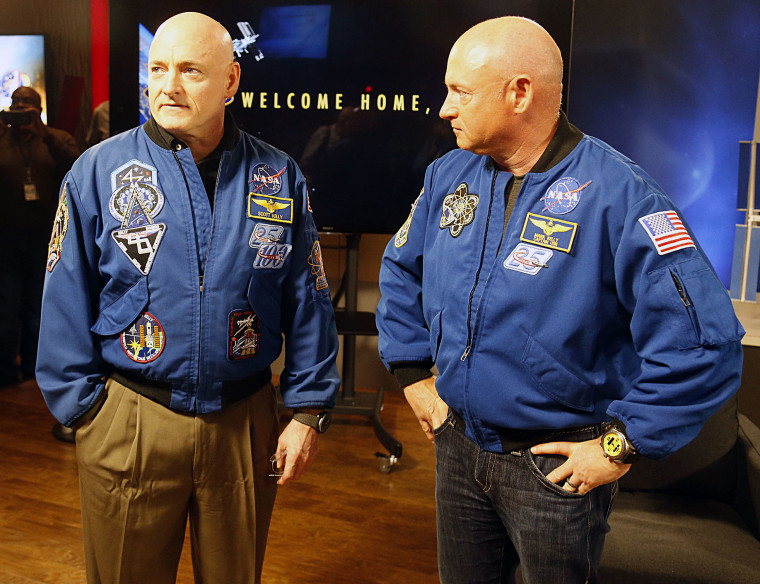Traveling to space is brutal on the body.
Spaceflight can cause astronauts’ bones to lose density, their brain and eye nerves to swell, and their genes to change expression. Research suggests spending time in space is akin to fast-tracked aging.
NASA’s pioneering study of the identical twin astronauts Mark and Scott Kelly tracked signals of aging in both men while Mark remained on Earth and Scott spent 340 days in space.
Some changes to Scott’s body — like DNA damage, reduced cognitive function and shortening of the telomeres that cap and protect chromosomes — persisted even after six months, according to a landmark 2019 “twins study” published in the journal Science.
Now, a study published Thursday in the journal Cell Stem Cell outlines a new discovery — that stem cells show signs of aging during the stress of spaceflight, too.
In fact, they age “ten times faster in space than on the ground,” said Dr. Catriona Jamieson, the director of the Sanford Stem Cell Institute at the University of California, San Diego, a lead author of the study.
Stem cells are special cells that can develop into various kinds of tissue. Stem cell aging is potentially worrisome because it diminishes the body’s natural ability to repair its tissues and organs, potentially leading to chronic, age-related conditions like cancer, neurodegenerative diseases and heart problems.
The new study comes at a time when interest in spaceflight is ramping up. Governments are planning long-duration missions to the moon, and private companies are launching consumers and celebrities into space. Understanding the health risks involved is important to making space travel safer. And the acceleration of aging in cells could also help researchers better understand how biological processes are playing out, more slowly, here on Earth.

The researchers collected stem cells from bone marrow donated by people who underwent hip replacement surgery. The cells were housed inside “nanobioreactors,” which are essentially small, transparent blood bags no bigger than an iPhone where biological processes could take place. The nanobioreactors were placed inside a box built to monitor the cells called a CubeLab.
Each patient sample was divvied up into two CubeLabs, one that was destined for space, while the other stayed on Earth.
The space-bound packages were launched during four commercial resupply missions by SpaceX to the International Space Station. In total, the samples spent 32 to 45 days on SpaceX’s spacecrafts, giving the cells more than a month in microgravity, or weightlessness experienced in orbit. The researchers used the cells in the CubeLab setups on the ground for comparison.
The CubeLab monitored the cells during their travels and terrestrial stays, taking images of them each day through a microscope. Once the space-faring stem cells returned to Earth, the researchers compared those samples with their “ground controls” by sequencing their genomes and performing other tests.
